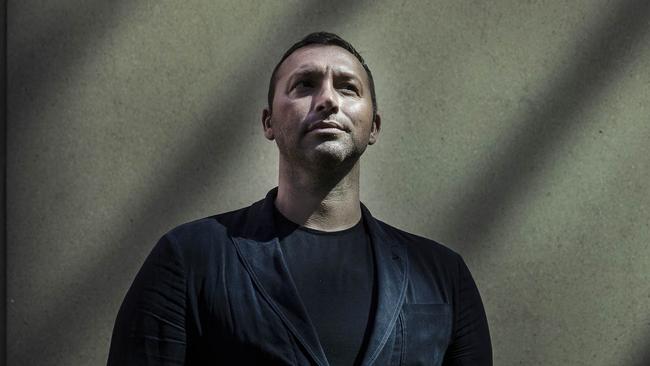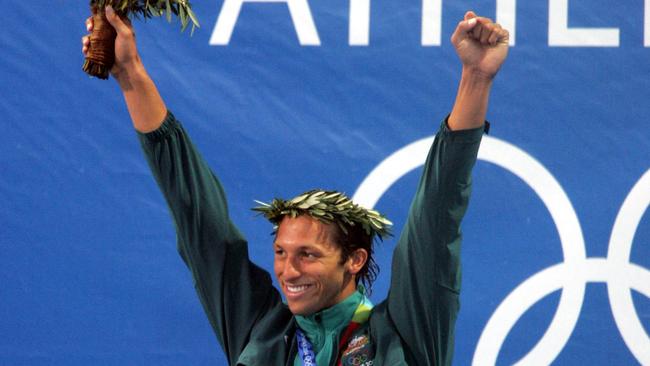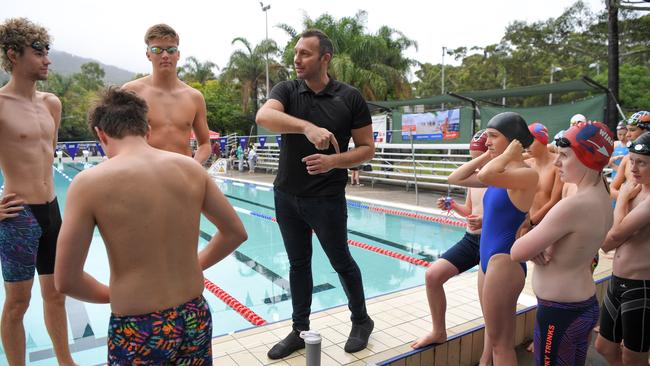Ian Thorpe reveals truth behind early retirement, mental health battle
A decade after his attempt at a comeback, Ian Thorpe has opened up on his mental health battle and revealed the real reason why he quit swimming.
Almost a decade on from his doomed attempt at a comeback, Ian Thorpe has finally revealed what everyone in Australian sport already suspected – he quit swimming way too young because he never got the proper help he needed to cope with the enormous pressure he was under.
In one of his most candid admissions yet, Australia’s most prolific gold medallist has told The Saturday Telegraph he could have – and should have – swum at two more Olympics but the mental health services available at the time were not up to scratch.
“Yes, we had a team psychologist, but people felt that if you saw him, then you had an issue,” Thorpe said.
“When I saw him, he asked why I was doubting my ability and then gave me a pep talk.
“From there it was up to me. The attitude to mental health was very different back then, although we do still have some way to go in breaking down the stigma.”
Kayo is your ticket to the best sport streaming Live & On-Demand. New to Kayo? Get your 14-day free trial & start streaming instantly >

On the surface, everything looked like smooth sailing to Thorpe during his heyday.
A world champion at 15, he won three Olympic gold medals at Sydney in 2000 when he was just 17 then two more at Athens in 2004 when he was 21, becoming a global superstar who made swimming look easy because of his flawless stroke and boyish charm.
But he shocked the sports world when he prematurely retired in 2006, secretly battling the mental demons of being trapped between his sporting ambitions and longing for a normal life away from the grind of training and the glare of the spotlight.
Thorpe unsuccessfully tried to qualify for the Australian team for the 2012 London Olympics but it’s only now – at age 38 – that he is finally coming to terms with the way his swimming career ended after seeing first hand the massive improvements in Australia’s wellbeing programs for elite athletes.
“None of this existed when I was competing,” Thorpe said.
“These services would have better equipped me to manage the incredible external pressure and huge amount of scrutiny on me while I was competing.
“Had these pressures not existed, I think I could have competed at another two Olympics.”

Thorpe has previously spoken about his mental health issues and battles with depression, revealing he drank too much alcohol in retirement and experienced suicidal thoughts.
Now Chair of the Australian Institute of Sport’s (AIS) Athlete Wellbeing Advisory Committee, he is heavily involved in the various programs that were not available to him or other elite athletes who faced similar problems.
These include Michael Phelps, the most decorated Olympian of all time who won an eye-watering 23 gold medals but also experienced suicidal thoughts – shattering the misconception that star athletes are exempt to the same problems as everyone else.
“Physical appearance, whether it be muscular or beauty, does not reflect someone’s mental resilience. The reality is that we all experience mental health challenges at some stage in our lives and athletes are not immune,” Thorpe said.
“I certainly don’t look the same as I did while I was competing and that doesn’t mean I’m mentally weak, it just means I’m not prepared to put the 40 hours of training in a week to look that way!”

The AIS is emerging as a world leader in recognising and managing mental health issues but experts are worried about the impact the global pandemic and the postponement of so many sports events is having.
More than 250 athletes and staff – representing a 23 per cent increase – have contacted the AIS Mental Health Referral Network this year while there has been a 103 per cent spike in the number of people seeking career advice for life after sport.
According to the 2020 Mental Health Audit, a survey conducted in partnership with the University of Melbourne, 48 per cent of surveyed athletes and 41.2 per cent of coaches and staff have reported anxiety and depression symptoms, at higher levels than the general community.
“I think it’s fair to say that the lives and the futures of our athletes are dependent on a strong and expert mental health network,” said Professor Patrick McGorry, the 2020 Australian of the year.
“It’s not just about if we want more gold medals and more success, but actually it’s the wellbeing and possibly the lives and certainly the futures of our athletes at stake. It’s a no-brainer.”






To join the conversation, please log in. Don't have an account? Register
Join the conversation, you are commenting as Logout